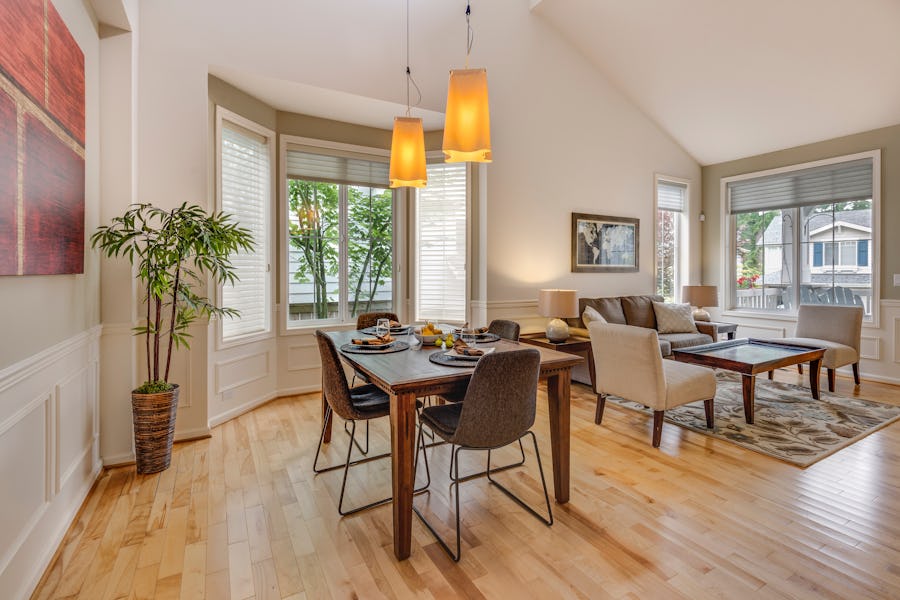Buying a home can seem like a challenging process, especially for a first-time homebuyer. We’ve broken down the key steps to buying a house to simplify the process for potential buyers.
1. Start your research early on
The first step in the home buying process is to start your research early. Start thinking about where you want to live and what you’re looking for in your home or potential new home community. You may want to browse real estate listings, taking note of homes that interest you and how long they stay on the market. Consider how many beds and baths you need, how much outdoor space, and what towns or neighborhoods you’re interested in. Keep in mind that your wish list should be flexible and will likely require some adjusting after evaluating your budget.
2. Figure out what you can afford
While you’re doing initial research and compiling a wishlist, you should also start tracking your budget and when to buy a home. Evaluate how much you spend on a monthly basis, how much you currently pay for living expenses, and whether you’re looking to pay more or less in your next home. It’s important to evaluate your own expenses before getting preapproved. Depending on your lifestyle and budget, you may want to spend less than you get preapproved for. You don’t want to sacrifice your lifestyle or savings for a home you can’t comfortably afford, regardless of what a lender offers you for a mortgage. Once you have a ballpark number, you can get a preapproval letter and adjust your budget from there if necessary.
3. Find the right real estate agent
One of the most important parts of the home buying process is finding the right real estate agent for you. Your agent will stay on top of home hunting, help you negotiate, and guide you through all the necessary paperwork. They’ll make the home buying process easier and less stressful. You may have friends or family who can recommend a REALTOR® to you, or you can browse online to find a good match.
4. Find your home
Now that you have a wishlist, a budget, and a qualified REALTOR®, the next step in the home buying process is to find your home! Your agent will help you find open houses and set up showings. You can do a lot of house hunting online and really narrow down your wants and needs based on your budget and what is currently available. Once you find the right fit, you can make an offer. Your agent will write up the offer and negotiate on your behalf. Don’t get discouraged if it takes a few tries, especially in a seller’s market.
5. Home inspection
Most of the time, you’ll want to get a home inspection done. This is when a home inspector goes through the home and makes note of any problems they find. If there are major issues or repairs needed, you may want to renegotiate your offer. Sometimes sellers will fix the problem before closing or accept a lower offer because of the results of a home inspection, so it’s an important process. If there are issues found that the buyers and sellers can’t find a solution for, the buyer may withdraw their offer.
6. Home Appraisal
If you’re buying a home with a lender, in most cases you’ll need to get a home appraisal. An appraisal is an estimate of how much a home is worth. Mortgage lenders typically require appraisals to ascertain that they are not lending more money for a home than what it is worth. They are conducted by a qualified, third-party appraiser who takes into account the home itself, the town/community, similar homes, and current market trends to determine the home’s value. If a home doesn’t appraise for what the buyer has agreed to pay, they will either have to pay the difference out-of-pocket or withdraw their offer.
7. Final Walkthrough
You’ll do a final walkthrough of your home just before closing to ensure everything looks the way it should and to make sure the home is in the same condition it was when you agreed to buy it. They are generally done as close to the closing as possible and after the seller has vacated the home.
8. Closing
The final step to buying a house is completing the closing. This is when the ownership of the property is transferred to the buyer and all the necessary documents have been signed, money exchanged, and the lender’s approval completed.
There are many steps in the home buying process, and a qualified REALTOR® can help you navigate through them seamlessly.





